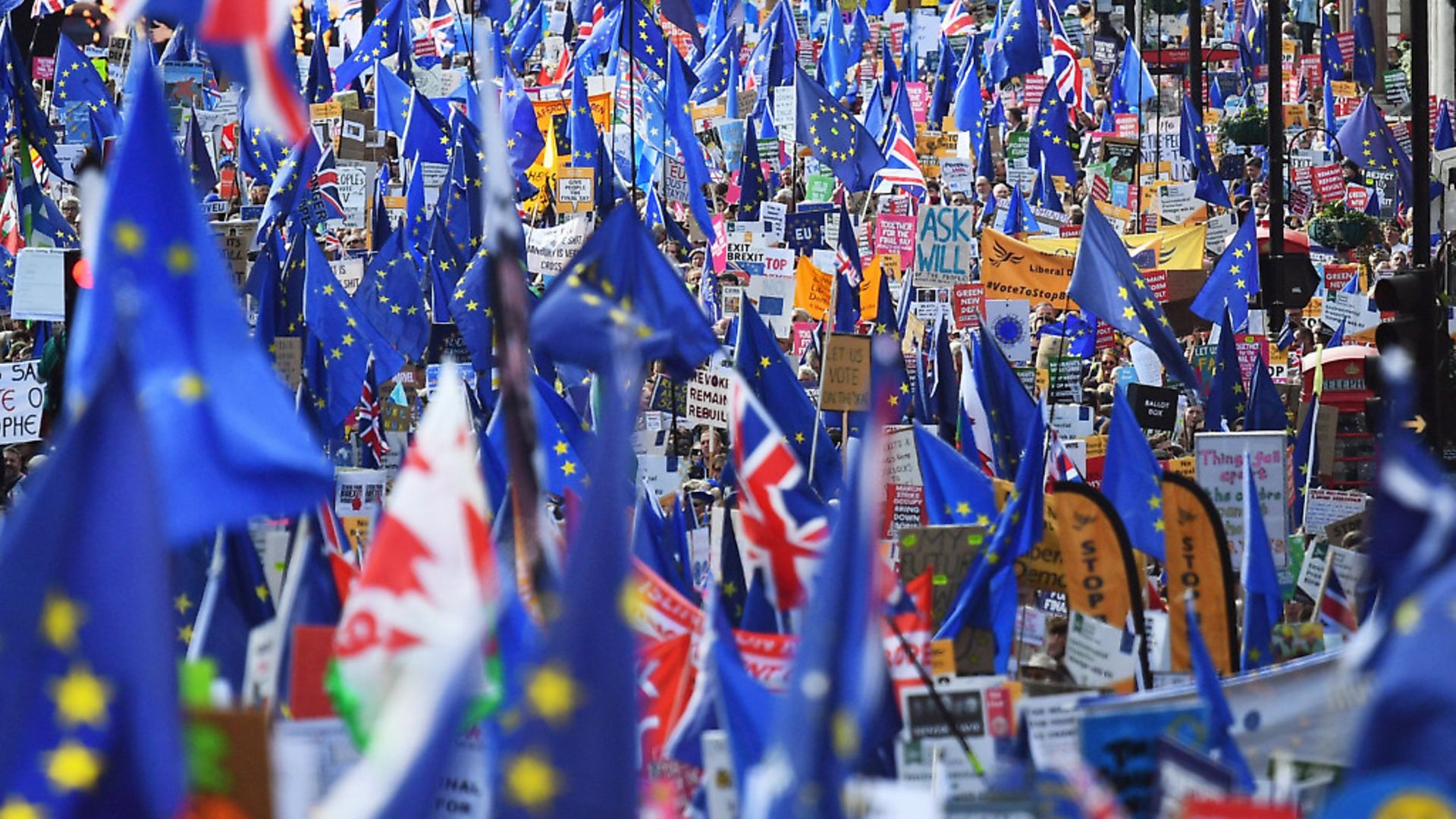
Andrew Adonis discusses the difficulties the UK has had in negotiating a Brexit deal and why it’s not too late to call a second referendum.
As Groucho Marx nearly said, these days I wouldn’t rush to belong to any club that will accept Britain as a member, whereas the European Union is so good at standing by its members, I wish we could join too!
Watching Britain take on the EU since 2016 has been painful and excruciating. The only issue is: Why did the referee not intervene earlier? Which is what the People’s Vote campaign is trying to bring about by Saturday’s great march.
One fact says it all. Since 2016, the EU has had just one Brexit negotiator – Michel Barnier. The UK, which ought to have found it 28 times easier to present a united front, has had David Cameron, Theresa May, Boris Johnson, David Davis, Liam Fox, Dominic Raab, Stephen Barclay, Ivan Rogers, Olly Robbins and David Frost. And that was only until Tuesday evening.
The Brexit farce-turned-tragedy is a play in three acts: prejudice, policy and outsized personalities.
It was a nationalist spasm – uncontained prejudice of the rawest kind – which led us down the Brexit path. The demonising of foreigners and immigrants has a long political history, stoked up by Oswald Mosley and Enoch Powell in the last century.
UKIP and Margaret Thatcher mainstreamed the prejudice, putting ‘sovereignty’ in the shop window while raw prejudice was rampant behind the scenes. To appease this beast David Cameron unwisely called his referendum. With Tory austerity in the mix and a deplorable Remain campaign, it scraped home.
The second act was to try and turn Brexit – for which there was no prior plan and just four words in the 2016 referendum: “Leave the European Union” – into a viable policy.
This proved impossible. It wasn’t just that the wild claims of 2016 – billions available for repatriation, retaining all the benefits of EU membership while gaining more in the world beyond – were exposed as unicornology.
Worse, it proved impossible to negotiate an exit from the customs union, single market and freedom of movement that did not involve a hard border in Ireland – endangering the Northern Ireland peace process – as well huge transitional pain and loss of jobs and investment for the UK at large.
Brexit became a reincarnated poll tax. Whether you think it a good idea or a bad idea, it simply can’t be done without escalating crisis. Which is why we are now in a second extension of our EU membership, imminently contemplating a third.
The farce should have terminated when Theresa May’s deal was first rejected by an overwhelming parliamentary majority in January. A second referendum was then the obvious course. At the time I thought May would call one, but she was too unimaginative and fearful.
Instead, we entered a third act, dominated by personalities who seized power through the Conservative and Brexit parties. Johnson, Jacob Rees-Mogg and Dominic Cummings, with Nigel Farage snapping at everyone’s heels, engineered a kind of coup over the summer. The only popular engagement was – ironically – the European parliament elections in May, when Farage destroyed what was left of Theresa May.
Throughout, the EU has maintained a consistent and united front. It continues to stand by Ireland, and refuses to allow Johnson to pick and choose between elements of membership of the customs union, the single market and freedom of movement.
As British prime ministers come and go, the EU becomes an ever more powerful beacon of sense and stability.
There was nothing preordained about this. It is the result of wise, steady leadership. Barnier, backed by Donald Tusk, Angela Merkel and Emmanuel Macron, have been a class act against the parade of British incompetents whose arrogance is exceeded only by their incompetence.
It goes to a deeper cause. In the last 70 years two institutions have grown supreme and benign in our continent – the Federal Republic of Germany, founded precisely 70 years ago, and the European Union, set up soon afterwards and in consequence.
In those 70 years, Germany has had half as many leaders as Britain and they have been twice as good. Merkel has now outlasted four British prime ministers and is into her fifth.
Post-war Germany never made the mistake of being half-in and half-out of the club of European democracies. It is still not too late for us to call that referendum and stay in.










